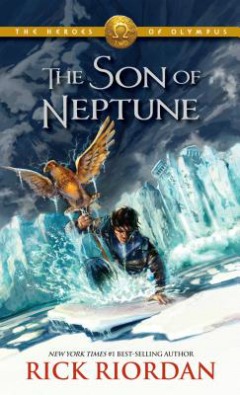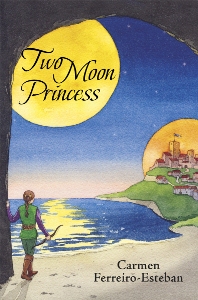This review contains affiliate links, which earn me a small commission when you click and purchase, at no extra cost to you. Thank you for supporting my small business and allowing me to continue providing you a reliable resource for clean book ratings.
Ah, Percy. We’re glad you’re back.
We join up with him as he’s running across the California landscape, being chased by Gorgons who can’t be killed for some reason, trying to get … somewhere. See, he’s lost his memory, and he doesn’t know who he is or where he’s really going. (Even though we fans haven’t; I was interested to see how Riordan would handle that, since we knew that Percy would have amnesia by the end of The Lost Hero, and I have to say that he did it well. Having the book be in third person rather than first, as the first series was, helped a lot. As did multiple points of view; I found it fascinating to see Percy from viewpoints other than his own.)
He shows up at Camp Jupiter — the Roman equivalent of Camp Half-Blood — and meets Frank Zhang, a halfblood with an interesting past and a curse to carry, and Hazel Levesque, the daughter of Pluto (aka Hades) who isn’t really supposed to be alive anymore. The three of them are sent on a quest by Mars (aka Ares, though I have to admit that I like Mars a whole lot more than I liked Ares) to face the giant sons of Gaea (the new bad “guy”), unleash death, and get back before an army of monsters destroys Camp Jupiter. In four days.
Clear as mud?
As usual, Riordan tells a compelling and entertaining story, playing on his two strengths: plotting and characterization. This one is shorter than The Lost Hero, but not by much, and Riordan packs in as much as he possibly can. There’s everything we’ve come to love in a Riordan book: action-packed sequences; a wee bit of sweet, innocent romance; humor (and good, quotable lines); and many, many references to mythology. (I’m not sure he’s pulling from myths anymore; I don’t know Roman mythology as well as Greek. That said, I’m not sure it matters at this point.)
Additionally, for this one especially, it helps if you know your Olympians series well. Thankfully, I’ve just finished reading them aloud to my daughter, so they were pretty fresh in my mind. There are references to that series all over the place, from hints about Percy’s past (in one of the more clever pulls, Reyna, one of the praetors at Camp Jupiter, was one of the people in Circe’s employ that Percy came across in The Sea of Monsters) to references of what Percy has accomplished in the past four years. And yet, while there’s a lot to juggle in this book, it doesn’t seem crowded. In fact, there were times — especially with characters; the setup for Octavian is intriguing, but Riordan never really goes anywhere with it — when I wanted more, not less.
As I mentioned before, Percy’s back in all his lovableness, and it’s quite refreshing to see him from other points of view. And Frank and Hazel were just as awesome to get to know. The overall plot arc is coming together slowly, but Riordan leaves a lot of threads hanging and a lot of questions unanswered.
It’s fun fluff, great for those of us who are fans of the series.
Rated: Mild for violence and intense situations.
Click here to purchase your copy of The Son of Neptune on Amazon.




